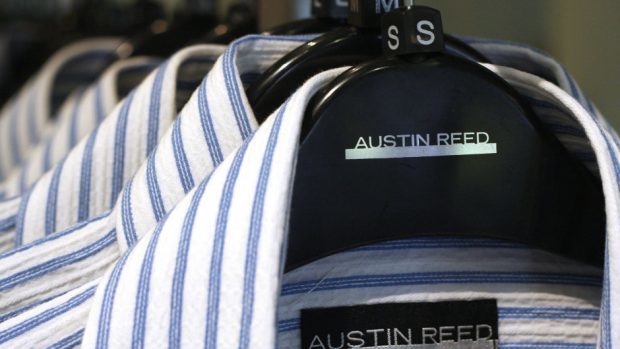Scottish retailer Edinburgh Woollen Mill (EWW) has stepped in to save the name of failed business Austin Reed but more than 1,000 jobs are being axed after most of the 116-year-old chain’s shops were left to perish.
EWW acquired just five concessions, employing 28 people in Boundary Mill Stores discount outlets in Newcastle, Colne in Lancashire, Catcliffe near Sheffield, Grantham and Walsall.
Austin Reed group administrator AlixPartners was unable to find a buyer for the rest of the business.
About 120 outlets, including shops trading under the Austin Reed, Country Casuals and Vyella men’s and women’s fashion brands, are expected to close by the end of this month.
The stores, owned by distressed retail specialist Alteri Investors since the middle of last month, crashed into administration on April 26.
Joint administrator Peter Saville said: “We have explored all options to sell the business since our appointment and continued to trade it, with the support of the secured creditors, in what is clearly an extremely challenging retail environment.
“Despite a significant number of interested parties coming forward during this period it became clear as the process progressed that a viable solution which kept the business whole was not forthcoming.
“As a result we have made the difficult decision to cease trading… and commence a wind-down of the estate.”
The collapse of Austin Reed, which had an Aberdeen store a few years ago, and the other brands came just a day after high street stalwart BHS went the same way.
EWM, based at Langholm in Dumfriesshire, has a record of turning around troubled companies.
In 2008, it bought 77 stores from the administrators for textiles business Rosebys and merged them with the assets of furnishings business Ponden Mill to create the Ponden Home chain.
Jane Norman and Peacocks have also been acquired out of administration by the £550million-plus turnover group, in 2011 and 2012 respectively,
Famous for its Harris Tweed, cashmere and knitwear collections, EWM has had a number of owners dating from the early 1970s. It was divested by Grampian Holdings – once one of Scotland’s most diversified trading groups – in 2001.
It is now owned by its chief executive, entrepreneur Philip Day, who led a £67.5million management buyout of the business in 2002.
Mr Day has fashioned a career out of resurrecting failed businesses.
He is believed to have been mulling a bid for a chunk of the BHS chain and its name. Other speculation has linked him to a possible move for Dobbies Garden Centres, currently owned by Tesco.
